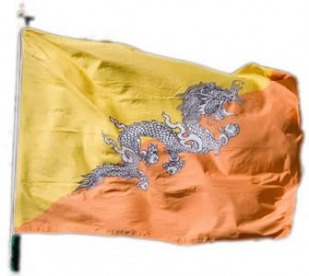The Active History Program
Mr. N. Tidridge, Room 2048The Active History Program has its foundations in the highly successful TRY Program developed at Waterdown District High School. In Active History Grade Nine and Ten students work to achieve their GLC2O (Careers), CHV2O (Civics) and CHC2L (Canadian and World Studies) credits while learning about various approaches to learning, community oriented education, and self-advocacy. Candidates can be self-identified, or nominated by administration and/or teachers. Intake is based on an interview between the parents, students, teachers, social worker and representatives from the high school administration. The teacher reserves the right to reject an application of a student.
|
|
Active History's Four Pillars of Value

The Kingdom of Bhutan has a very different approach to measuring the value of a country. Instead of using GNP (Gross National Product) as a unit of measure, Bhutan recognizes GNH (Gross National Happiness). GNH rests on four pillars of value:
Environmental Conservation
Cultural Preservation & Promotion
Sustainable & Equitable Development
Good Governance, including Active and Responsible Citizenship.
Active History has adopted the Bhutanese Pillars of Value, as well as the kingdom’s approach to education. Bhutanese Prime Minister Jigmi Y. Thinley explains that the goal of their education system is to produce “ . . . human beings, with human values, that gives importance to relationships, that are eco-literate, contemplative, [and] analytical.” One of its goals is to have students realize that happiness is found in giving happiness to the surrounding community.
Both the Pillars of Value and Prime Minister Thinley’s approach to education can be integrated with the Ontario Curriculum, especially in the CHV2O (Civics) program.
Learn more about Gross National Happiness at www.grossnationalhappiness.com
Environmental Conservation
Cultural Preservation & Promotion
Sustainable & Equitable Development
Good Governance, including Active and Responsible Citizenship.
Active History has adopted the Bhutanese Pillars of Value, as well as the kingdom’s approach to education. Bhutanese Prime Minister Jigmi Y. Thinley explains that the goal of their education system is to produce “ . . . human beings, with human values, that gives importance to relationships, that are eco-literate, contemplative, [and] analytical.” One of its goals is to have students realize that happiness is found in giving happiness to the surrounding community.
Both the Pillars of Value and Prime Minister Thinley’s approach to education can be integrated with the Ontario Curriculum, especially in the CHV2O (Civics) program.
Learn more about Gross National Happiness at www.grossnationalhappiness.com
Videos that link to our discussion of Gross National Happiness:
|
|
|
Course Package (2014-15):
Important Handouts
|
| ||||||||||||
| |||||||
| Ideology as a Man.pdf | |
| File Size: | 129 kb |
| File Type: | |
Civics Culminating Assignment
One of the main goals of Civics is to show students how to be active citizens. Envisioned by Mr. R. Flosman and adapted by Ms. Burnagiel and Ms. Craven , this assignment asks students to research and advocate for a local charity - there is also an option for students to submit their charity for an annual Toskan-Casale award. Learn more about the Toskan-Casale Foundation at www.toskanfoundation.org.
Your browser does not support viewing this document. Click here to download the document.
Hedonic Indicators Article - The Walrus, April 2010:
Your browser does not support viewing this document. Click here to download the document.
Reading to Students:
Why do we do it?
Your browser does not support viewing this document. Click here to download the document.
|
Books we look at in Active History:
|
"What does it mean to be a man in the 21st Century?"
Originally seminars given by Mr. Flosman, Mr. Campbell, Mr. Harvey, Mr. McEwen, Mr. Shiga & Mr. Rizza
Dan Eldon:
|
|
|
